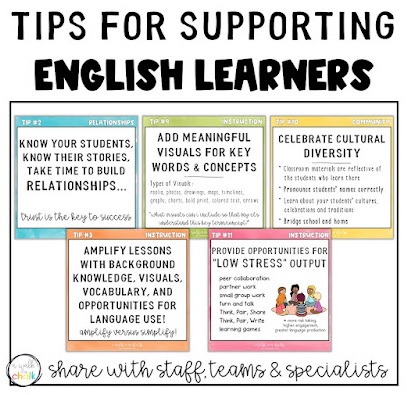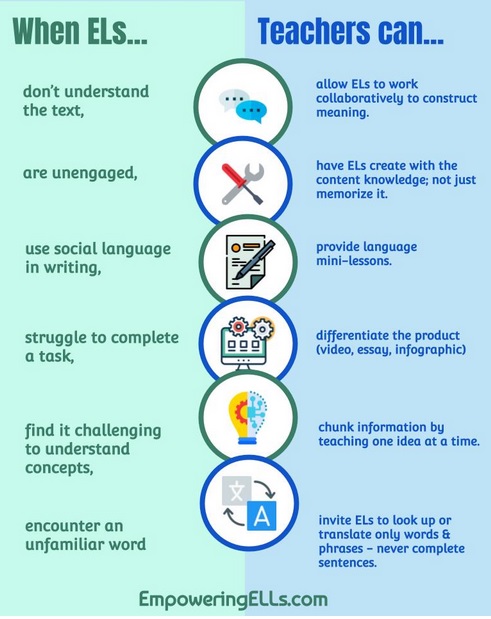
8 Simple Ways To Help Your Best English Learners Grow
28th April 2025Do you teach English in Thailand? Have you ever had a student who completes every task faster than everyone else? They sit there waiting while others are still working. You might think, 'This student is so smart!' But then what? Do you give them more of the same exercises? Or do you find ways to push their abilities?
These quick and high-ability ESL learners are not just fast- they are talented language students who need unique attention. As students who struggle need extra help, advanced learners need more challenges. Otherwise, they might get bored and stop improving.
8 Strategies on How to Challenge High-Ability ESL Students
Let's look at some simple ways you can help your best English students keep growing, whether you teach in a classroom or online:
1. Add Different Tasks for Different Students
You do not need a complicated system to do this. Give students tasks that match their level. While most of your class works on basic grammar exercises, your advanced students could write creative stories, study song lyrics, or listen to English podcasts and write summaries. This way, nobody gets bored or feels overwhelmed.
This approach- giving different tasks based on skill level- helps everyone learn at their own pace. Your advanced students stay challenged while others master the basics.
2. Let Them Move Ahead
Some advanced ESL students are ready to jump forward in their learning journey. Instead of holding them back, let them explore more developed material. You can offer them harder reading texts or let them try lessons meant for higher levels. Some schools even allow students to join special online language programs that go beyond regular class material.
Just make sure they are truly ready for the next step. You do not want to push them into something too difficult too soon.

Source: awalkinthechalk.com
3. Add Depth, Not Just More Work
Give activities that make students think deeper, not just work harder. Ask your advanced students to research an interesting topic such as holidays in English-speaking countries. They can record short videos talking about their day, have simple chats with fluent speakers, or even write their thoughts on a class blog.
These tasks help them use English in creative ways while connecting language to real-world situations. They will see how English works outside textbooks.
4. Let Them Take Control
Some of your brightest learners enjoy choosing how they learn best. Help them set personal goals for their English progress. Maybe one wants to learn twenty new phrases this month. Another might want to watch English news daily and write what they learned.
Show them helpful tools like language apps, YouTube channels, audiobooks, or grammar games. When learners get to choose how they learn, they usually stay more focused and excited to improve.
5. Use Team Projects
Do not let your best students always work alone. Get them working with others. Group projects like creating a class newspaper, preparing a short play, or holding a debate can challenge even your most advanced learners. You can pair them with native speakers (if possible) or other strong students.
Working together helps improve speaking skills along with leadership abilities and confidence.
6. Use Technology for Personal Challenges
There are plenty of online tools that keep lessons interesting while still pushing students to think harder. You can use online apps to adjust and match each student's level and allow the sharing of ideas in creative ways. Language forums or online pen pal programs can connect them with other English learners worldwide.
In this way, you are not just teaching English- you are giving them tools to practice, explore, and communicate whenever they want.
7. Use Real Materials from the Real World
Textbooks are helpful, but real-life English materials can be even better. Let your advanced students read news articles, watch documentaries, or listen to podcasts about topics they enjoy- sports, music, fashion, science- anything that interests them.
The great thing about these materials is they naturally become more challenging as students' skills grow. Therefore, your learners always face just the right level of difficulty.
8. Give Helpful Feedback That Shows Growth Paths
Don't just say 'Good job.' Tell them exactly what was good and how they can do even better next time. When your students write or speak, give them specific feedback about their word choice, sentence structure, grammar, and vocabulary. Ask questions like, 'Could you use a stronger verb here?' or 'What's another way to say this idea?'
This kind of detailed feedback helps them improve without feeling discouraged.

Source: empoweringells.com
Why Challenging Advanced Learners Matters
It is a myth that top students can manage without help. But that idea can lead to missed learning opportunities. But that is one of the biggest myths in teaching. Following are the reasons why you need to keep challenging the quick or advanced learners:
- Students finishing early tend to show less enthusiasm despite strong abilities. Giving them the usual tasks won't help. They need tasks that stretch their thinking.
- Like muscles that need increasing resistance to grow stronger, language skills require progressively difficult challenges to develop. Without this, their learning growth stalls.
- When advanced learners face appropriate challenges, they retain more information, develop creativity, improve problem-solving skills, and build confidence.
- Top performers create a more manageable classroom and stay productively occupied- giving you more time to focus on the other learners struggling with the basics.
Bottom Line
Educators who pursued internationally accredited TEFL courses in Thailand understand the need to help top learners reach their full potential. Even the most curious and capable learners can lose interest when they are not given enough challenge. So, when you see students finishing early, instead of handing them similar worksheets, try to give them a real challenge.
Written By : Varsha
